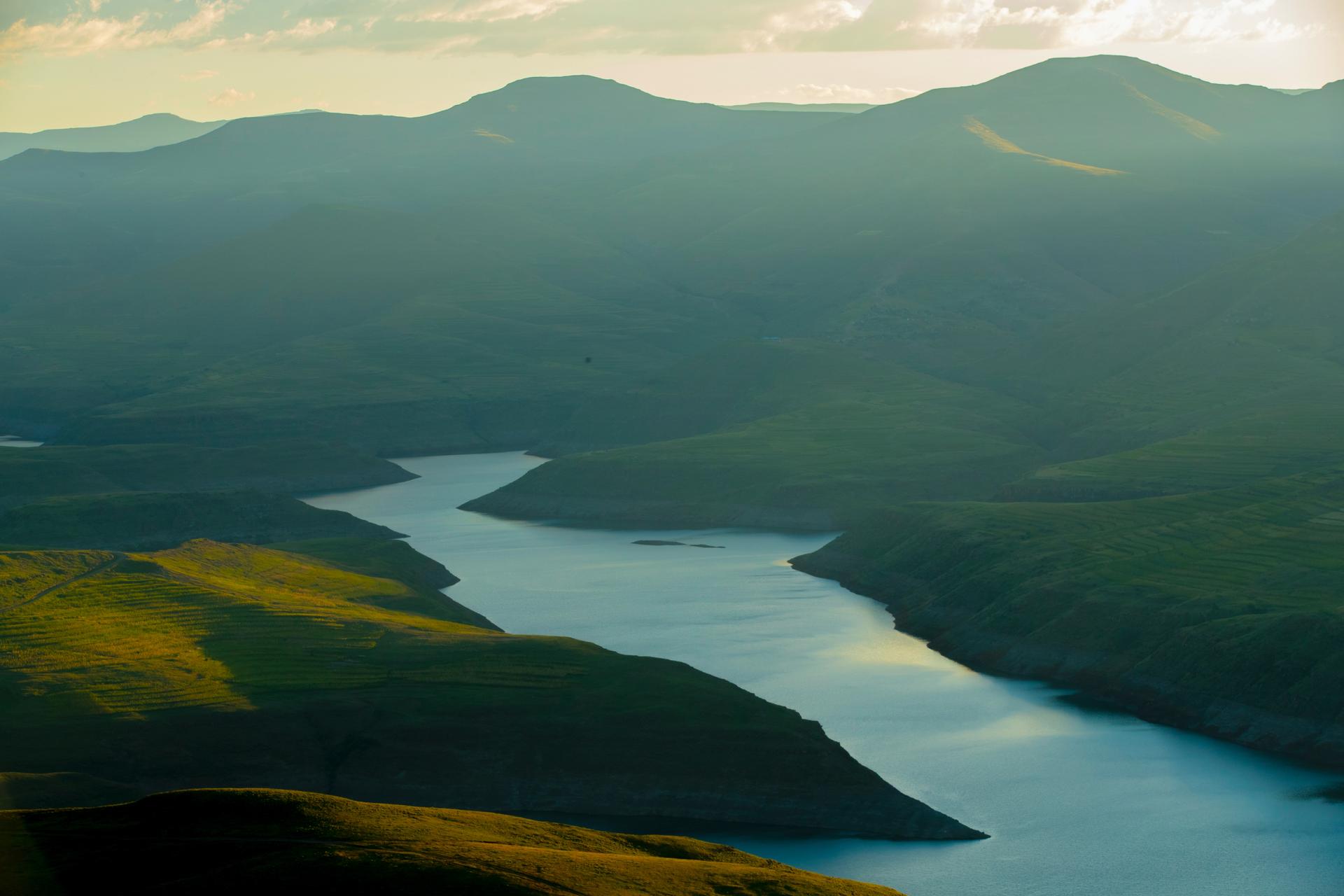Lesotho🇱🇸

Lesotho, also known as the Kingdom in the Sky, is a landlocked country located within the country of South Africa in the African continent. It's the only independent state in the world that lies entirely above 1,000 metres in elevation. Its landscape consisting majestic mountains, undulating valleys dotted with traditional rondavel huts, and crystal-clear waterfalls is its key highlight. Its diverse fauna and flora make it a haven for nature enthusiasts. Its unique blend of traditions such as the 'Sotho' culture with their traditional attire of colourful blankets, and modernity make it special. Highly recommended places to visit include the Semonkong Falls, Katse Dam, the UNESCO World Heritage Site of Thaba Bosiu and the AfriSki Mountain Resort.
⚠️Things you should avoid⚠️
- Avoid getting involved in political demonstrations or large public gatherings which have potential to turn violent.
- Avoid travelling alone at night and in isolated areas due to crime risks.
- Avoid relying on public healthcare services for serious health concerns; instead seek medical attention in South Africa.
- Avoid risky sexual behaviours as the HIV prevalence rate is high.
- Avoid disrespectful behaviours towards LGBTQ+ individuals.
- Avoid border areas as they are prone to smuggling and related criminal activities.
- Avoid offensive public comments or actions that may be seen as disrespectful to the local culture and traditions.
- Avoid consuming tap water, especially in rural areas. Stick to bottled or boiled water.
- Avoid driving without international driving license and always obey traffic rules.
- Avoid discussing sensitive political matters publicly to prevent unwanted attention.
Overall
6
Crime 🔫
5
Lesotho suffers from a moderate rate of crime, heavily influenced by poverty and unemployment. Cities like Maseru, the capital, and Leribe are prone to incidents of robbery, theft, and assaults, especially in crowded areas and at night. Public protests and strike actions can turn violent, therefore caution should be exercised.
Terrorism 💣
10
Lesotho's terrorism threat is low, with no known international terror groups active within the country. No significant terror incidents have been reported up until the end of 2021.
War ⚔️
10
Lesotho has remained relatively peaceful, with no ongoing internal or external wars. The political climate is stable, although sporadic political protests occur.
Natural Disasters 🌊
6
The country is periodically susceptible to natural disasters, specifically droughts and flash floods, due to its high-altitude climate and mountainous terrain. An instance is the devastating drought in 2019 which left many facing food insecurity.
Medical Care 🏥
4
Medical facilities in Lesotho are limited especially in rural areas. While basic health services are available, serious medical issues may require evacuation to South Africa. There is a shortage of basic medical supplies.
Tap Water Quality 💧
6
The quality of tap water varies dramatically. In cities and developed areas, it's generally considered safe for drinking. However, in rural and underdeveloped areas, it's advisable to drink only bottled or filtered water.
Disease Burden 🤒
3
Lesotho has a high burden of disease, particularly HIV/AIDS and Tuberculosis. As of end 2021, it has the second-highest HIV prevalence rate in the world. Additionally, it's prone to seasonal outbreaks of diseases like typhoid and cholera.
Corruption 💸
4
Corruption is moderately high in Lesotho, affecting areas such as public services and law enforcement. There have been instances in the past where high-ranking officials have been implicated in corruption scandals.
Safety for Women ♀️
5
While women generally are safe, incidents of gender-based violence and sexual assault occur. Travelling alone at night and in less touristy areas is generally not advised.
Safety for Queer People 👬
7
Homosexuality is legal in Lesotho and there's a growing acceptance of LGBTQ+ individuals, particularly in urban areas. However, societal attitudes can be conservative and discrimination exists.
Censorship 📺
8
Freedom of speech and press are protected by constitution. However, self-censorship exists due to fear of political reprisals. No significant incidents of state censorship were reported as of 2021.
Public Transportation 🚌
6
Public transportation includes minibus taxis and 4x4 taxis. However, they are often in poor condition and follow no set schedule. Also, driving standards are low, with frequent traffic accidents. Use caution when utilizing public transport.
Other useful information
🔒 How safe is it?
Lesotho is generally safe for tourists. However, occasional crimes, limited healthcare infrastructure, and potential for natural disasters pose risks. Being aware of surroundings and avoiding risky behaviours is essential for a safe trip.
🏰 Embassies in this Country
Several countries including the United States, China, Germany, and Ireland have embassies or high commissions in Maseru, the capital.
💉 Recommended Vaccinations
Recommended vaccinations include measles-mumps-rubella (MMR), diphtheria-tetanus-pertussis, varicella, polio, Hepatitis A, Hepatitis B, Typhoid and Rabies.
🐍 Dangerous Animals
Dangerous animals such as leopards, crocodiles, and poisonous snakes including Puff Adders and Black Mambas can be encountered in wilderness areas.
🛂 Visa Requirements
Visitors from many countries, including the US, EU, and South Africa, don't require a visa for stays up to 90 days. Always check with your embassy.
💲 Currency
The currency is Lesotho Loti, which is tied to the South African Rand. Both currencies are accepted and can be exchanged in banks and exchange offices.
💳 Credit Card Acceptance
Credit cards are widely accepted in urban areas and larger towns. However, cash is preferred in rural areas.
🧑🏭 Is it possible to work and travel in this country?
Paid work is challenging due to high local unemployment. However, volunteering opportunities are possible in areas like education, healthcare, and environmental conservation.
💵 Cost of Travel and Living
Cost of travel and living is relatively low compared to western standards. Decent accommodation, public transport, food and sightseeing are affordable.